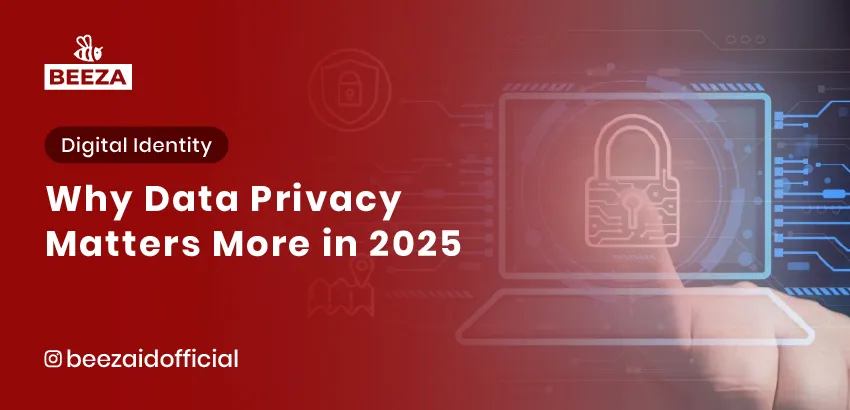
Introduction: Why Data Privacy Matters More in 2025
As we step further into the digital age, data privacy has emerged as a top priority in 2025. The explosion of online services, smart devices, and cloud infrastructure has led to unprecedented data generation—much of it personal, sensitive, and valuable.
Data privacy is no longer just a technical issue handled by IT departments. It’s now a critical business, legal, and ethical concern that shapes how companies build trust, meet regulatory requirements, and protect their brand reputation. So, why is data privacy more important than ever this year?
1. Massive Growth in Personal Data Volume
From online shopping and social media usage to smart home devices and digital banking, people generate more personal data than ever before. In 2025, global data volume is expected to exceed 180 zettabytes, much of it linked to individuals.
📌 The challenge?
More data means more opportunities for misuse, theft, or exposure—especially without adequate privacy controls in place.
2. Surging Data Breach Incidents
The past five years have seen a 300% increase in data breaches, impacting everyone from small businesses to governments. These incidents cause serious financial, legal, and reputational damage.
Data breaches are not always caused by sophisticated attacks—human error, weak security practices, and lack of awareness are often the culprits.
3. Stricter Global and Local Data Regulations
Regulations like the EU’s GDPR, Singapore’s PDPA, and Indonesia’s PDP Law are enforcing stricter compliance requirements for organizations handling personal data. In 2025, failing to comply can lead to multi-million-dollar fines and legal actions.
💡 Being proactive about data privacy means building trust, avoiding penalties, and gaining a competitive edge.
4. Rising Consumer Awareness and Expectations
Modern consumers are more aware of how their data is collected and used—and they’re becoming less tolerant of poor privacy practices. A 2025 global survey showed that over 80% of users prefer doing business with companies that respect their privacy.
📌 Trust is becoming the new digital currency. Companies that protect customer data will win long-term loyalty and brand strength.
5. Digital Identity Is Now a Core Asset
In 2025, digital identity is at the heart of access to financial services, healthcare, education, and government programs. Protecting digital identity is essential not just for security, but for safeguarding human rights in the digital era.
✅ Tools like biometric authentication, encryption, and secure eKYC are becoming vital to ensure digital identities are verified and safe from fraud.
How Businesses Can Prioritize Data Privacy in 2025
- Classify and audit data assets to understand what data is collected and where it is stored.
- Adopt privacy-by-design principles in digital product development.
- Leverage secure identity tools like biometrics and multi-factor authentication (MFA).
- Train employees to understand the value of data privacy and how to uphold it.
- Partner with trusted technology providers like Beeza to implement secure, compliant, and scalable data solutions.
Conclusion
In 2025, data privacy is no longer optional—it’s essential. Businesses that fail to address it risk legal penalties, lost trust, and long-term reputational damage.
🔐 Those who invest in strong data protection practices will gain consumer trust, regulatory compliance, and a competitive advantage.Need help integrating secure digital identity and privacy protection tools into your system?
Contact Beeza today and explore how our biometric-based eKYC and cybersecurity solutions can future-proof your business.
Discover more digital solutions with Beeza to help your organization grow securely in the digital age.